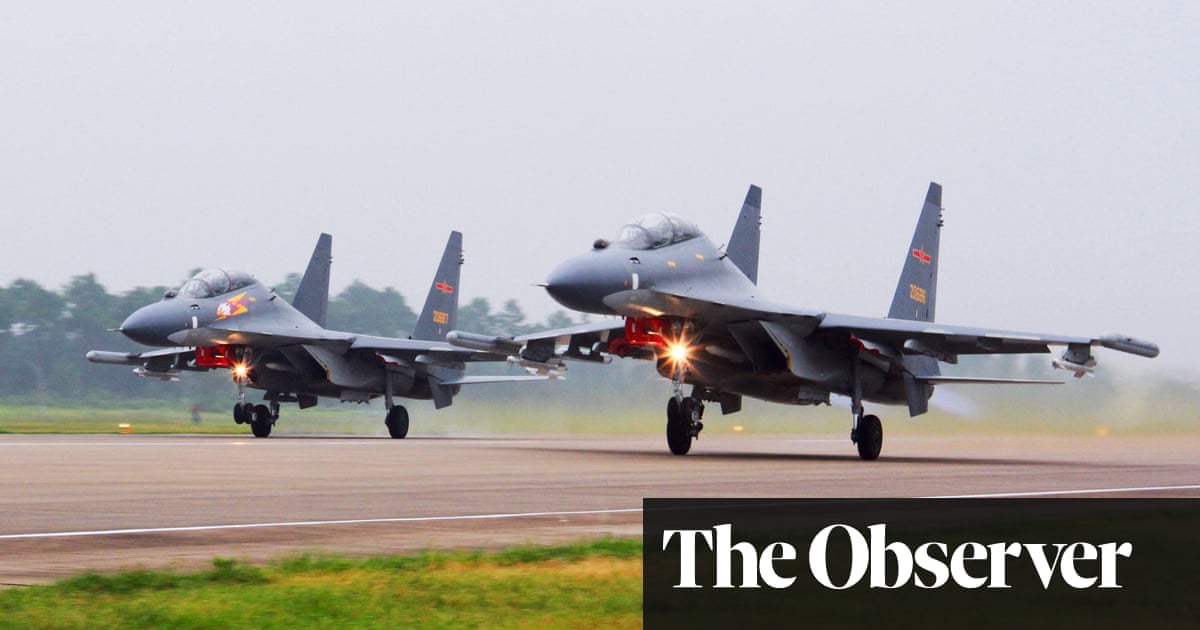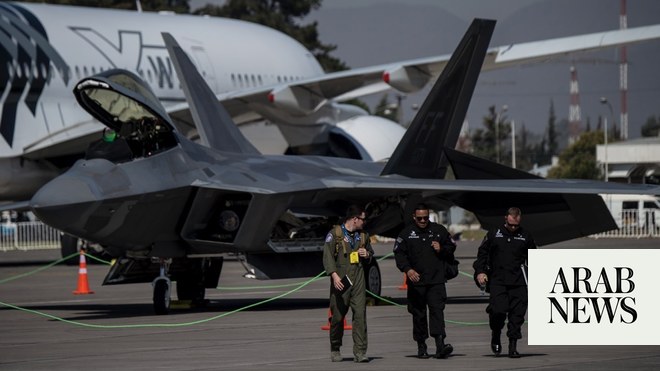
Two US strategic bombers flew over the Korean peninsula on Wednesday in a show of force by Washington against Pyongyang’s aggressive nuclear drive.
A South Korean Defense Ministry official said, requesting anonymity because of department rules, said the bombers simulated missile strikes off the peninsulas east coast before flying with two South Korean jets to then stage similar drills off the west coast.
The two B-1B supersonic bombers flew from an air base in the US territory of Guam to South Korea for drills with that countrys jets.
The US military said in a separate statement it conducted drills with Japanese fighters after the exercise with South Korea, making it the first time US bombers have conducted training with fighters from both Japan and South Korea at night.
The flights came after a South Korean lawmaker was reported to have revealed that North Korean hackers may have stolen highly classified military documents.
Rep. Lee Cheol-hee, a lawmaker for the ruling Democratic Party who sits on the National Defense Committee, said defense sources told him that North Korean hackers last year stole the classified US-South Korean war plans, including parts of Operational Plan 5015, which includes procedures for a “decapitation strike” on the Norths leadership if a crisis breaks out or appears imminent.
The Defense Ministry after an investigation said in May that North Korea was likely behind the hacking of the Defense Integrated Data Center in September last year, but had refused to confirm media speculation that the decapitation strike plan was compromised.
Defense officials refused to comment Wednesday.
Lee, who didnt specify his sources, said the plans allegedly stolen by the North include operations for tracking the movement of the Norths leadership, isolating their hideouts, executing air assaults and follow-up actions for securing and eliminating targets, which would obviously include North Korean leader Kim Jong Un.
"There is an urgent need for the military to change and update parts that were stolen by North Korea," Lee said.
A preemptive strike against Pyongyangs leadership would be difficult to undertake, but its widely seen as the most realistic of the limited military options Seoul has to deny a nuclear attack from its rival.
Meanwhile, US President Donald Trump met top defense officials to discuss how to respond to any threat from North Korea.
Tensions have soared between the United States and North Korea following a series of weapons tests by Pyongyang and a string of increasingly bellicose exchanges between Trump and North Korean leader Kim Jong Un.
North Korea has launched two missiles over Japan and conducted its sixth nuclear test in recent weeks as it fast advances toward its goal of developing a nuclear-tipped missile capable of hitting the US mainland.
Trump hosted a discussion on Tuesday on options to respond to any North Korean aggression or, if necessary, to prevent Pyongyang from threatening the United States and its allies with nuclear weapons, the White House said in a statement.
Trump was briefed by Secretary of Defense James Mattis and Chairman of the Joint Chiefs of Staff General Joseph Dunford at a national security team meeting, the statement said.
The United Nations Security Council, which has imposed a series of ever tighter sanctions on North Korea, has banned four ships from ports globally for carrying coal from North Korea, including one vessel that also had ammunition.
The vessels are the first to be designated under stepped-up sanctions imposed on North Korea by the 15-member council in August and September over two long-range ballistic missile launches and Pyongyang’s sixth and largest nuclear test.
China, North Korea’s main ally and trading partner, has consistently argued sanctions alone will not work, urging Washington and Pyongyang to lower their rhetoric and return to the negotiating table.
China’s influential Global Times tabloid expressed alarm at how far the rhetoric on both sides had gone and how it had increased the risk of a “fatal misjudgment”.
“The international community won’t accept North Korea as a nuclear power. North Korea needs time and proof to believe that abandoning its nuclear program will contribute to its own political and economic advantage. This positive process is worth a try,” the paper said in an editorial late on Tuesday.
“War would be a nightmare for the Korean Peninsula and surrounding regions. We strongly urge North Korea and the US to stop their bellicose posturing and seriously think about a peaceful solution,” it said.












